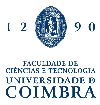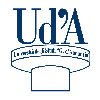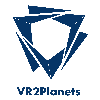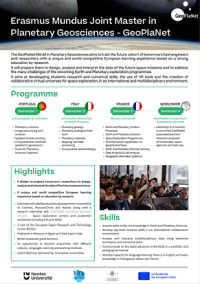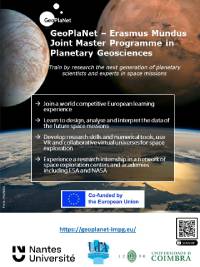GeoPlanet Erasmus + Strategic Partnership project for higher education (KA203) - 2020-2023
Context
The spectacular progress of space exploration during the last 30 years has allowed the development of Planetary Geosciences, characterised by an increasing involvement at the international level, of specialists of the Earth (geologists, geophysicists, geochemists) in understanding evolutionary processes of other planets. Planetary Geosciences is an interdisciplinary approach combining expertises in observation, experimentation and modelling.The beginning of the 21st century has been marked by the development of ambitious space exploration programmes by new actors such as India and China. In this competitive context the GPN-SP project addresses the needs of structuring and internationalise the HE training in Planetary Geoscience in EHEA, strengthening excellence, increasing cooperation with industry and proposing a complementarity of fields. Indeed, many Masters in Astrophysics and Astronomy, in Planetary Geology and in Planetary and Earth Sciences exist in EHEA but there is currently almost no offer in education which federates all these fields and proposes a combined expertise in research in planetary geosciences.

Project objectives
1- Structure and enrich the training offer in Planetary Geosciences in Europe by:
- Strengthening cooperation between partners and develop new collaboration with private companies
- Allowing the realisation of synergies and exchange of good practices inside a network of excellence, with joint activities and intellectual outputs, sustainable for future training courses
- Allowing participants to develop a multicultural European approach that will be very valuable for their careers in an intrinsically international sector.
2- Transfer the research collaborations, expertise and cutting-edge disruptive technologies used in research field into the training field:
- Increase knowledge about employers needs in the space exploration sector to adapt training offers
- Foster Innovation through testing and implementing innovative practices in the field of education such as VR and new interdisciplinary modules in planetary geosciences that will enrich existing international degrees
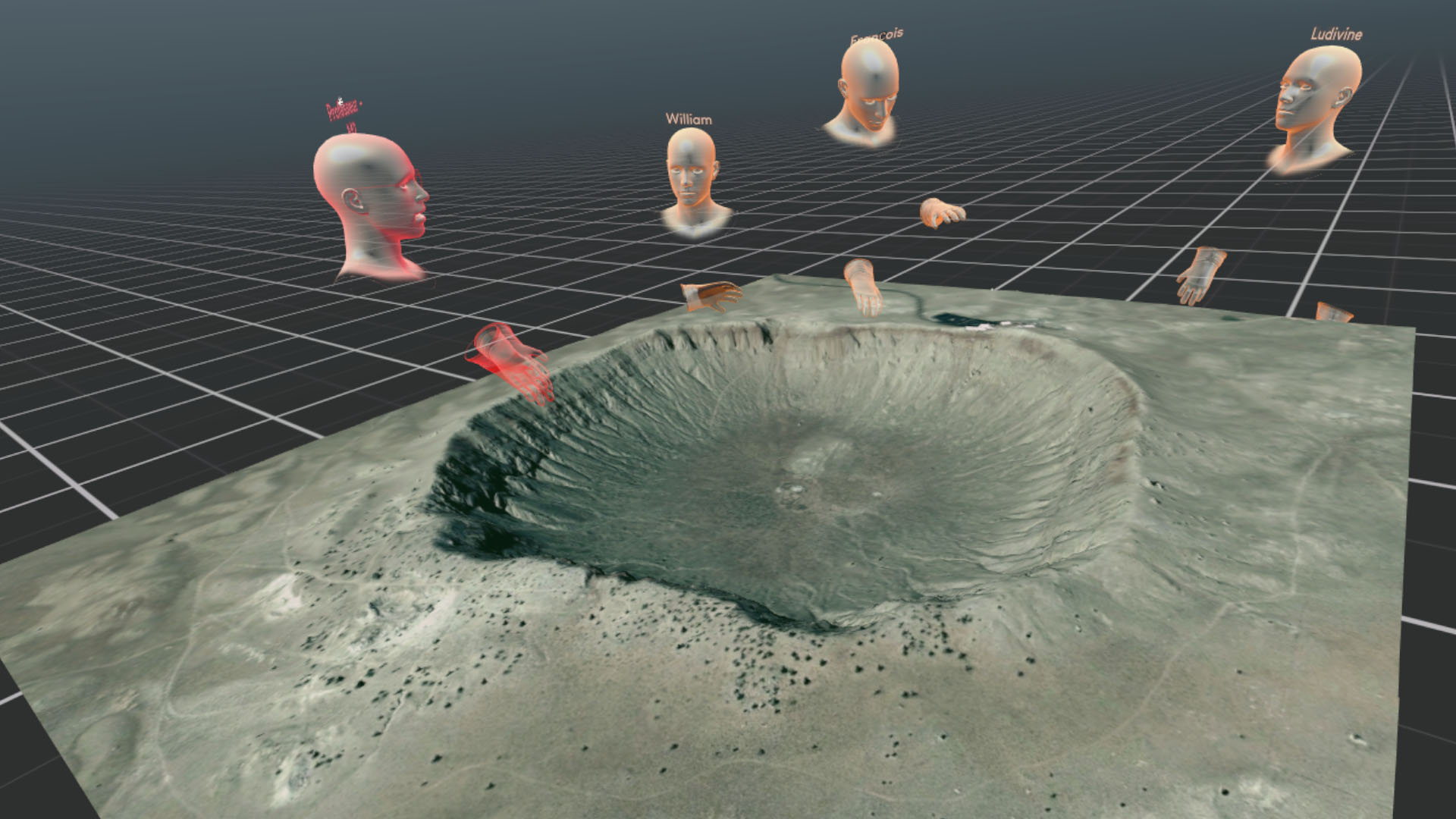
"Geology course in virtual reality: the teacher and the students communicate and interact around the 3D model of Meteor Crater (Arizona) to discuss geological processes (software developed by VR2Planets) " - Image credit: VR2Planets
This project is meant at:
- The 500 researchers and Master 1, Master 2, PhD and post doctorate students in Planetary Geosciences from the Partners Institutes,
- The 20 Institutions of the whole GeoPlaNet Consortium,
- Students and researchers from other Universities and broader audience benefiting from the results that will be made public on this website.
Methodology
Long term benefits
Budget : 263 416 €
Impact & Dissemination
Impacts are expected at local, national and international levels: enriching existing education programmes will boost the attractivity of Universities, foster partnership with private companies and benefit to the excellence of the education offer at European level.
3 Multiplier Events will be organised to present the results of the project:
- Conference at the Nantes Museum about habitality: “A la recherche de la vie dans l’Univers”
- Participation in the science and fiction festival “les Utopiales” where the output on Virtual Reality will be showcased,
- Participation in the “Settimana Terra” (The Week of Planet Earth) festival about geosciences in Italy, where Italian partners will present the outputs related to their school on digital mapping and planetary analogs.
Good Practice label


